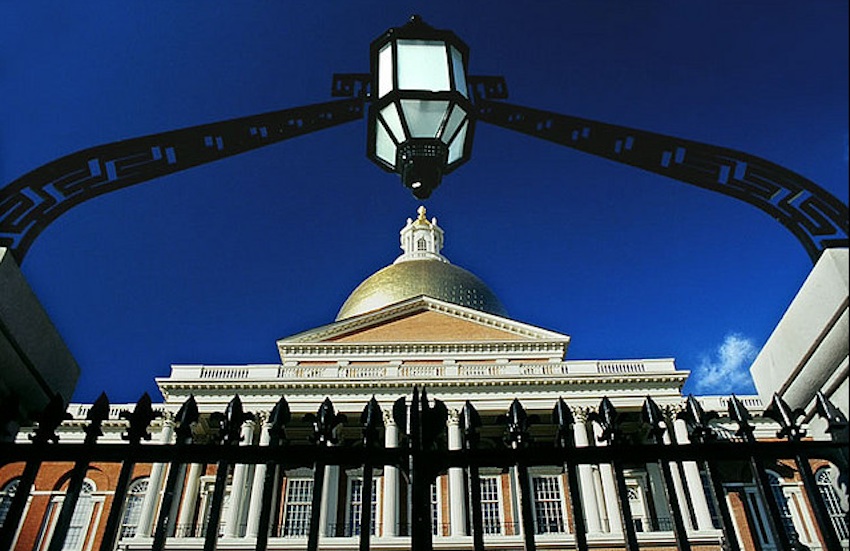There’s a Push to Raise the Minimum Wage in Massachusetts
Massachusetts hasn’t raised the minimum wage for workers in half a decade, and Beacon Hill lawmakers say it puts employees at a disadvantage as they try to pay bills and support their families.
“It’s a problem that is long overdue,” says state Senator Marc Pacheco, D-Taunton. “These low-wage workers have bills to pay and basic needs they need to have met … the rate does not keep up with the cost of purchasing products that are out there.”
As the cost of living increases, Pacheco says, the money earned by minimum wage workers doesn’t keep pace. On Tuesday, Pacheco will bring a bill before the legislature’s Joint Committee on Labor and Workforce Development and call for a tiered minimum wage increase plan that would help support economic recovery in the state.
According to Pacheco’s proposal, the bill would raise the current minimum wage from $8 an hour to $9 an hour 60 days after passage, then to $10 an hour starting on July 1, 2014, and finally, to $11 an hour beginning July 1, 2015. Beginning in 2016, the minimum wage would then start increasing based on the spike in the Consumer Price Index, “thereby preventing further decline in value in the future,” the bill states.
“We are trying to reach down and help those playing by the rules, and working one, two, and in some cases three jobs at a time in order to make ends meet. The wage has not been adjusted [since 2008], and it should be adjusted,” says Pacheco. “It’s an issue long overdue, and it’s about economic justice. We need to be looking down at the bottom rung and making sure those people that are getting up everyday [can make a living wage].”
Currently, the minimum wage in Massachusetts is $8 per hour, putting the state behind six other with higher pay rates for employees. Five more states, including Ohio, Florida, Arizona, Montana, Colorado, are right behind Massachusetts in terms of wages, but those states raise the minimum based on inflation, and could soon surpass Massachusetts’ $8 rate, according to the Massachusetts Budget and Policy Center. “With a passage of this [bill] we will be at the top of the minimum wage scale nationally. Other states have gone beyond Massachusetts,” says Pacheco.
State Treasurer Steve Grossman agreed with Pacheco’s sentiment that wages needed to be increased at least over the next three years. In a letter sent to the Chairs of the Joint Committee on Labor and Workforce Development, he wrote that the current wages pose a challenge for many families. “If Charles Dickens was alive today he would write A Tale of Two Commonwealths—one about prosperous, thriving communities filled with low unemployment, state of the art schools and modern transportation infrastructure, and another about Gateway Cities suffering from too few jobs and teachers, along with too little hope and dignity,” wrote Grossman. “In government, the most vulnerable citizens are our responsibility. We cannot afford to leave anyone behind.”
A 2012 report from the Economic Policy Institute showed that by increasing the minimum wage to $10 per hour, more than a half a million Massachusetts workers would benefit from the raise, and create thousands of new jobs.
Data from the Massachusetts Budget and Policy Center also shows that when the minimum wage does not increase from year to year, but prices and the cost of living continue to go up, minimum-wage workers have lose the ability to purchase the products that they bought the previous year, often cutting back on certain expenses. Pacheco says by matching the cost of living expenses, it would create an economic boon for Massachusetts. “The rate does not keep up with the cost of purchasing products that are out there,” says Pacheco.



